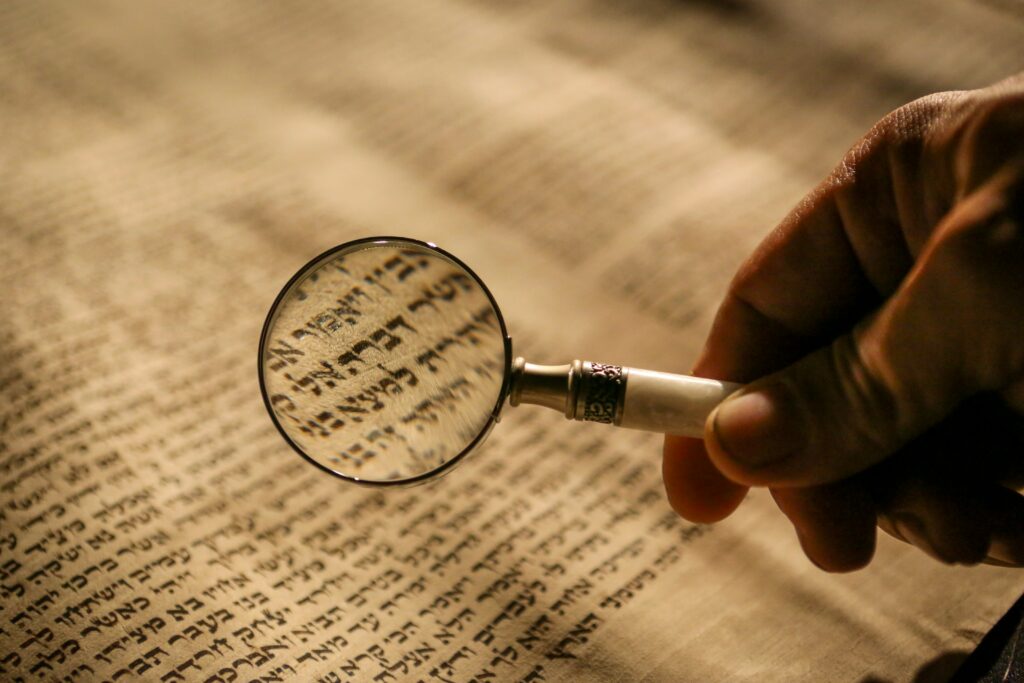
I noted in the previous post that some analysts end the first Servant Song with verse 4. I agree with those who posit a second stanza, which extends through verse 9. My reason for that is simple; verse 6 continues the singular form with which the chapter began (though it switches from 3rd person to 2nd). You can tell that “you” in verse 6 is singular if you’ll check the KJV; that version uses the archaic forms “thou” and “thee,” which consistently are singular in form and thus translate singular forms in the underlying Hebrew.
Verse 7 continues addressing the singular object and speaks of his mission in ways that the later Servant Songs will as well. So I’d say this first Song has a second stanza, verses 5-9.
There’s a second question: who is the Servant? Traditionally Jewish scholars have identified Israel as the Servant, while Christians have seen him as the Christ. A few interpreters think he’s simply the prophet Isaiah. This early in our survey I’m not ready to give my position, since we have little data to work with in just the 4 verses of the first stanza. I will note that Isaiah seems to be an unlikely prospect, since the first stanza speaks of him establishing justice around the world (Is 42.4), and Isaiah himself clearly did not do that. This second stanza seems to rule out Israel, since the Servant is said to be given “for a covenant of the people” (Is 42.6), and it seems unlikely that Israel would be given to Israel. But for now we’ll withhold judgment and keep looking for evidence in the text.
This second stanza begins with a proclamation about God, the one speaking: He’s the Creator and maintainer of heaven and earth and all it contains (Is 42.5). The stanza later repeats this idea (Is 42.8), in what literary analysts would call an “inclusio”: this Creator God is greater than all other gods, and he calls himself YHWH. Most English translations render this personal name, I think unfortunately, as “the LORD” (note the small caps). So the Master of this Servant is infinitely great, yet one who seeks a relationship with his people and remains ever-present with them. Evidence of this greatness extends into the next verse (Is 42.9): God has kept all his promises to this point, and he makes further promises about the future, because he sees and knows it perfectly.
Between these two bookend statements God reveals something of his relationship with the Servant as well as the Servant’s mission. Yahweh has called the Servant and will be present with him to make him successful in the accomplishment of his mission (Is 42.6), which will involve not only the covenant people Israel, but the Gentiles as well.
And what is that mission? To bring light to the blind and freedom to the imprisoned (Is 42.7). We’re not given the details at this point: are these people literally or spiritually blind? Are they literally or spiritually in prison? Perhaps we’ll learn more in later Songs.
But what have we learned so far?
Someone, a “Servant,” is coming. He has a special relationship with the all-powerful and all-knowing God. He may appear less than impressive, but we must not underestimate him, for he is empowered by God and will certainly be successful in bringing justice to the whole earth.
This is a unique God, and a unique Servant. This is an earth-shaking change, and best of all, a change for the better. This is a message of hope to all who suffer injustice, who wonder if there is deliverance. The God who has done marvelous things for centuries will repair the brokenness of what we see, thereby putting in place a good and gracious future world.
We don’t know—yet, here in Song 1—when or how all this will come to pass. But we have our confidence boosted by the power and the record of success evidenced by the covenant-keeping and eternally consistent God.
Next time, a Second Song—and a longer one.
Photo by Mick Haupt on Unsplash
Song 2, Part 1 | Song 2, Part 2 | Song 2, Part 3 | Song 3 | Song 4, Part 1 | Song 4, Part 2 | Song 4, Part 3 | Song 4, Part 4 | Song 4, Part 5

Ken Colby says
Very interesting analysis Dan! I really enjoyed your two articles on this Servant Song, and look forward to the next. :-)